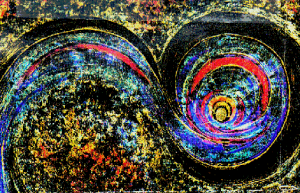No, no! You’re not thinking, you’re just being logical.
–Niels Bohr, Nobel Prize winner in physics
 To date, our collective approach to human intelligence often relies on outdated concepts. The misplaced expectations we place on the ability of instinct and intuition to guide us in life often obliterates their original contributions. We expect intuition and instinct to give us black and white answers that logic can evaluate. It is simply not their function. Yet this misunderstanding of intuition and instinct, which is evident in questions like, “Can I trust my intuition to make the right decision?” or “Can I rely on my guts to do this?” is often encountered in business. This in turn limits our ability to better understand the breadth and depth of a situation and make decisions with a broader perspective, which is exactly what instinct and intuition are meant allow us to do.
To date, our collective approach to human intelligence often relies on outdated concepts. The misplaced expectations we place on the ability of instinct and intuition to guide us in life often obliterates their original contributions. We expect intuition and instinct to give us black and white answers that logic can evaluate. It is simply not their function. Yet this misunderstanding of intuition and instinct, which is evident in questions like, “Can I trust my intuition to make the right decision?” or “Can I rely on my guts to do this?” is often encountered in business. This in turn limits our ability to better understand the breadth and depth of a situation and make decisions with a broader perspective, which is exactly what instinct and intuition are meant allow us to do.
It is necessary to better understand how our brain functions in order to better leverage its creative capacity for in-depth reflection, original thinking, and efficient and sustainable decision making. But with the exception of rare initiatives, business schools and educational institutions in general seem quite resistant to change in this field of interest. Our economy is highly complex and unpredictable. This makes traditional decision making, which is predominantly guided by the laws of logic, inoperative or plain dangerous. Therefore we need to better understand our mental life–and its larger potential, which is hidden to the conscious mind yet accessible to the newly educated and insightful individual; this is where intuition and instinct com into play to help us identify in the midst of complex systems the decisive piece of information that would have otherwise eluded our rational mind.
Instinctual aptitudes can be instrumental in business. People who employ instinct and intuition have a more and more decisive competitive advantage when navigating in the new economy. But what exactly is instinct? Here are some simple definitions to keep in mind:
– Instinct is our innate inclination toward a particular behavior (as opposed to a learned response)
– A gut feeling or a hunch–is a sensation that appears quickly in consciousness (noticeable enough to be acted on if one chooses to) without us being fully aware of the underlying reasons for its occurrence.
– Intuition is a process that gives us the ability to know something directly without analytic reasoning, bridging the between the gap conscious and nonconscious parts of our mind, and also between instinct and reason.
In everyday language these three terms can at times be substituted for one another. Some people may also understand or define these words differently. But at The Human Company, these definitions reflect the specific meaning we attach to each.
In the 1960s, Dr. Douglas Dean, along with his colleague John Mihalasky, studied approximately five thousand executives. Eighty percent of them said they believed in extrasensory perception (ESP) and used it to anticipate and seize profitable business opportunities. ESP is casually referred to as a sixth sense, gut instinct, or hunch, and for this reason ESP pertains to our subject matter: the importance and the role of instinct and intuition in decision making. This belief in ESP did not stem from the fact these highly successful businessmen had any theoretical knowledge of the subject, nor did it indicate that they would seek advice from a person with psychic abilities. It was simply the reflection of a direct experience with these abilities and their concrete applications to business. Dean and Mihalasky also studied a particular subgroup among the initial five thousand executives. They focused on 165 presidents and CEOs of American companies who had doubled or more than doubled their company profits in a five-year period. They found that 80 percent of them had above-average predictive computer test scores; that is, they demonstrated precognitive abilities. This piece of research on the use of everyday intuition for decision making in business led the authors to believe that precognitive ability was a reliable indicator of financial success. According to the authors, measuring potential aptitudes for ESP would be a much better indicator of professional success than other psychometric instruments. Some of the highly successful global companies I have worked for, like Estée Lauder Companies and L’Oréal, do give great importance to intuition. Mrs. Estée Lauder herself would rely greatly on her intuition, and today Estée Lauder Companies CEO Fabrizio Freda insists on maintaining and supporting intuition–in conjunction with a strong analytical capacity–in the work of his teams as a fundamental aspect in the success of the company. L’Oreal’s former CEO, François Dalle, who built the beauty company into a world-renowned multinational, insisted on “intuiting what is arising” as a key competence the beauty company executives had to develop and work with. This type of belief is not limited to the beauty industry. Konosuke Matsushita, Japanese industrialist and founder of Panasonic, once said. “No matter how deep a study you make, what you really have to rely on is your own intuition.”
Dean and Mihalasky’s well-known research has been available since 1974, the year of its publication. It is not new knowledge. And since then, similar studies have produced similar results. Another study was conducted in the 1980s, using two thousand managers over a period of two years. This study revealed that executives used intuition like “explorers” to “foresee” the correct path to follow, but they did so secretly. A well-known 1994 study conducted at the Harvard Business School produced a global survey of more than 1,300 practicing managers in nine countries: the United States, the United Kingdom, Austria, Brazil, France, India, Japan, the Netherlands, and Sweden. Of the 1,300 polled executives, 80 percent explained their success through decisions made intuitively, and 75 percent claimed they used intuition and logic equally. However, the study also shows that more than 50 percent of them would not publicly admit to relying on intuition. These last two examples prove that gut feelings and intuition are widely resorted to in business, but that there is definite prejudice against this type of aptitude.
So how come organizations I know and organizations I hear about still evaluate executives on criteria such as team management, interpersonal communication, entrepreneurship, and, more recently, emotional intelligence, but they do not integrate in their evaluation templates the ability to manifest as well as encourage in others instinctual intelligence and intuition at work? How come classes about intuitive skills are still so rare in business schools? A first answer seems obvious: we are culturally uncomfortable with what’s not exact and what cannot be demonstrated. Even if research shows that many successful business minds use intuition, it remains hard to conceptualize intuition and make it a tangible capacity that can be taught and measured. Besides, to share an intuitive opinion or to defend it in a fact-based environment such as a business presentation requires self-confidence and courage. All these issues are cause for leaving the challenging topic of intuition out of modern society in which the scientific mind is clearly seen as a warrant for truth and reliability.

